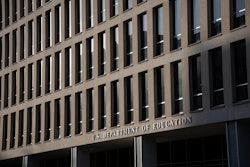Howard University leaders are partnering with the Republic of Botswana to create the southern African country’s second institution of higher learning, which will focus on science and technology.
A memorandum of understanding was signed March 29 by Howard University President H. Patrick Swygert and Festina S. Bakwena, permanent secretary of the Ministry of Education, to establish the Botswana International University of Science and Technology, which is scheduled to open in 2009 with 1,000 students.
“When there are no more diamonds we will have our people,” said Bakwena during the signing ceremony. “It is important as a developing country for us to invest in our human resources, and there is no better way to do that but through education.”
Currently, only 7 percent of Botswana’s 1.6 million citizens go on to higher education. The creation of a second university is hoped to triple the number of university students over the next decade. Currently, the only higher education option in the country is the University of Botswana, located in the capital city of Gaborone.
Lapologang C. Lekoa, Botswana’s ambassador to the United States, says the idea originated three years ago when the country’s president visited Howard University and proposed the public-private partnership.
“The idea was that in this partnership it’s up to the prospective partners to agree or decide on what each one does,” Lekoa says. “The government of Botswana will provide the land and infrastructure. Howard will design the curriculum, provide training and offer other academic collaboration.”
Under the agreement, Howard will provide technical assistance in developing a campus plan. The historically Black university will also develop undergraduate and graduate curricula in science, technology, the social sciences, humanities, business and economics. And Howard will oversee the recruitment, selection, hiring and development of the new university’s administration and faculty. Botswanan graduate students at Howard, mostly at the doctoral level, who have been identified as prospective faculty prospects, will be groomed to step into professorships at the new school as well.















